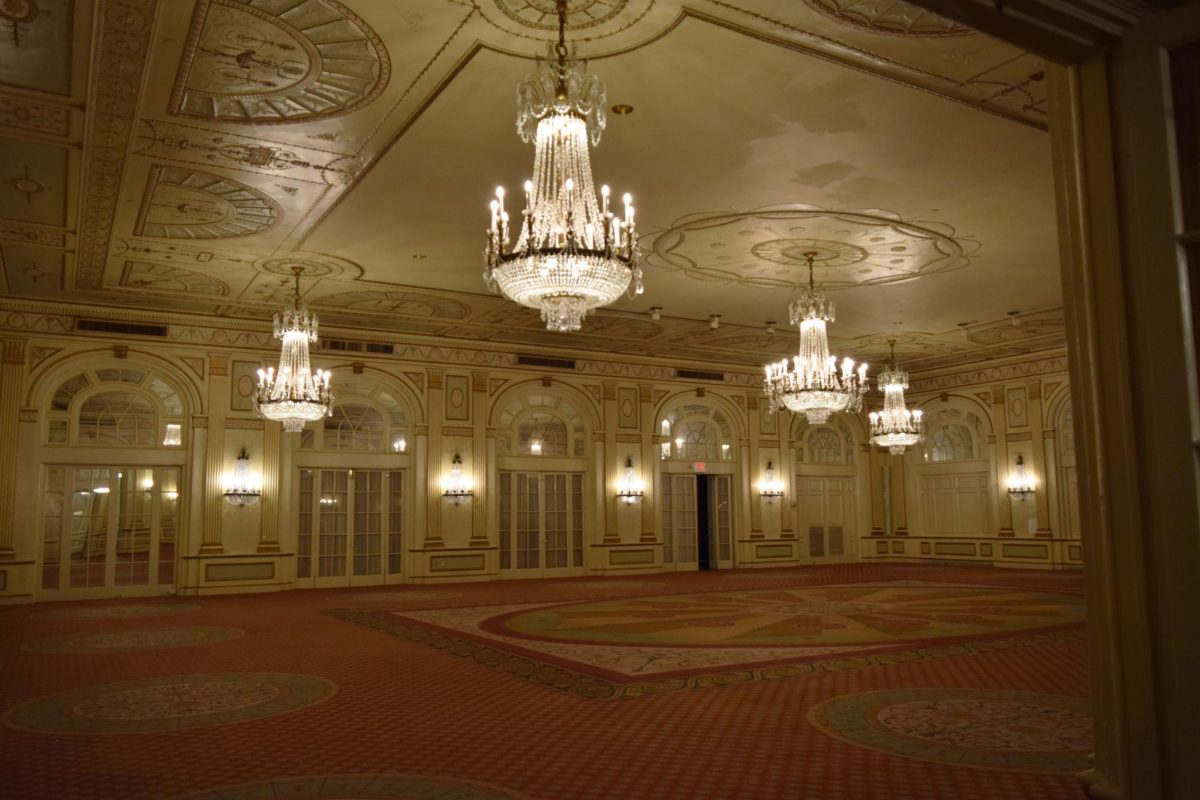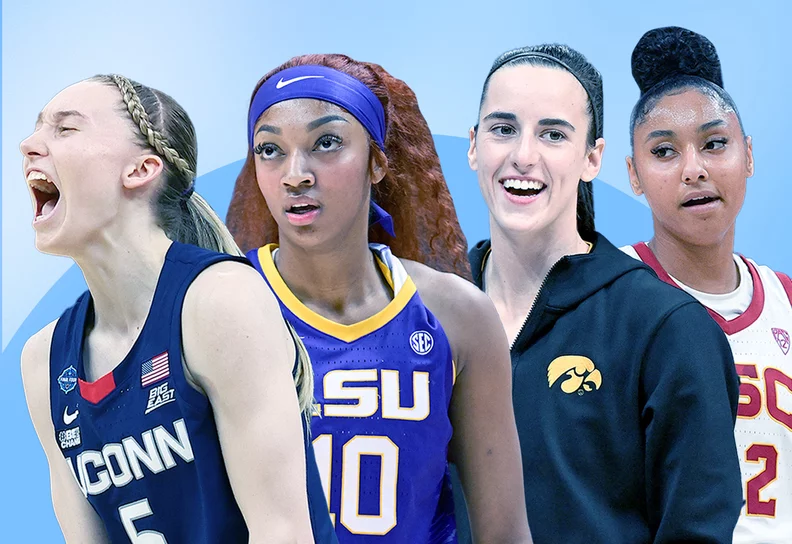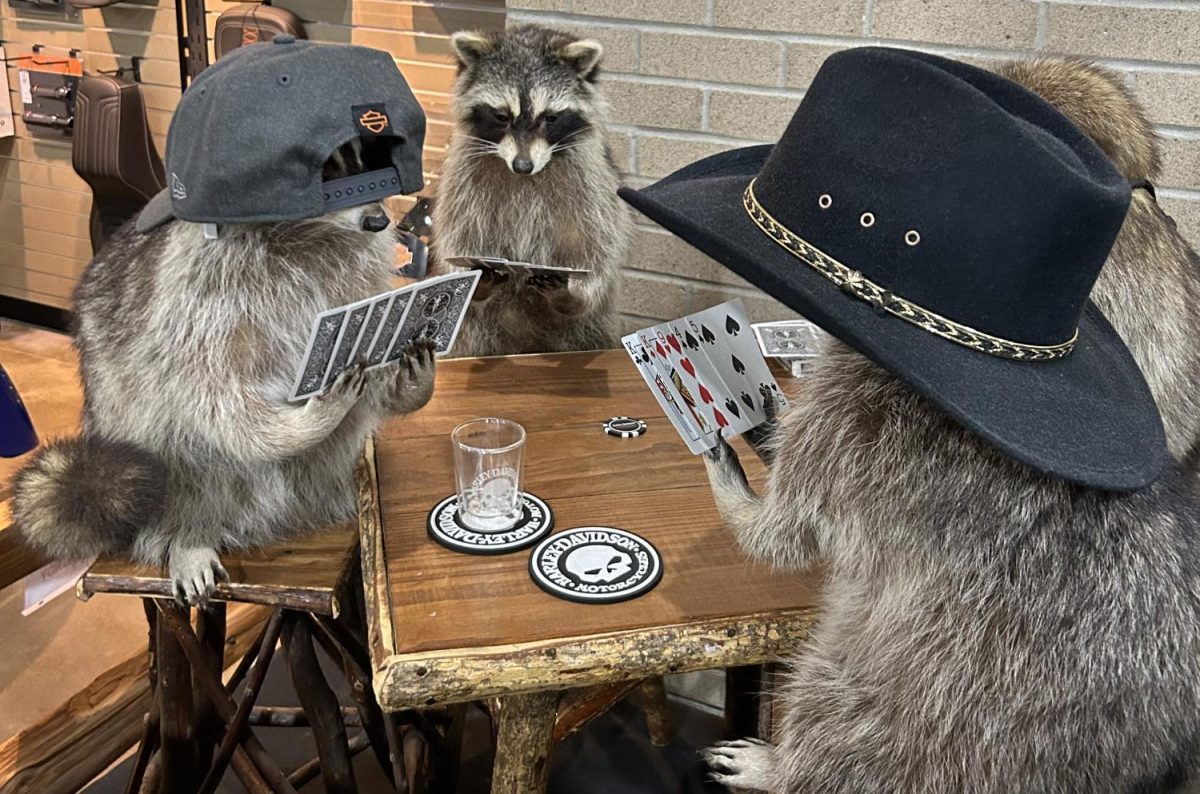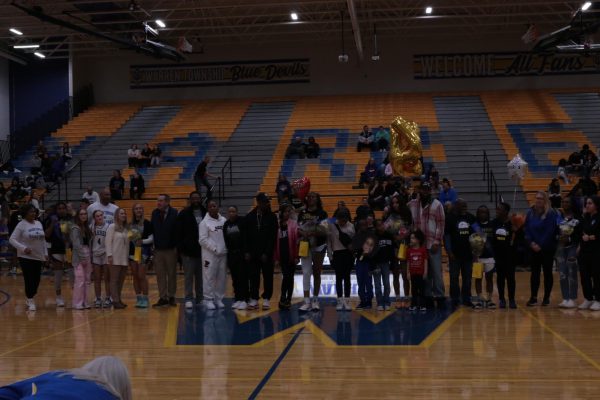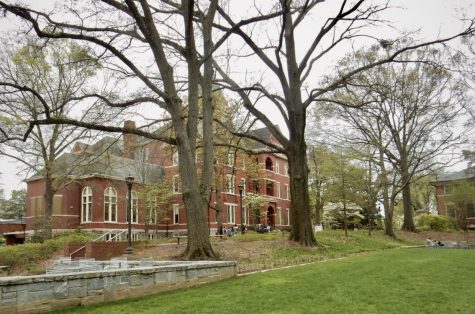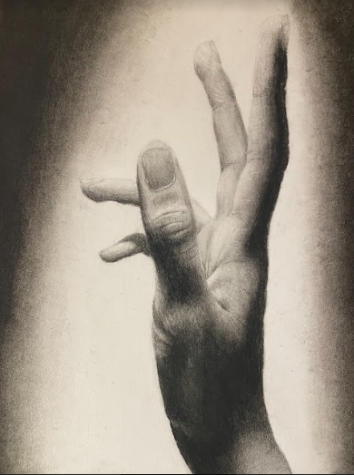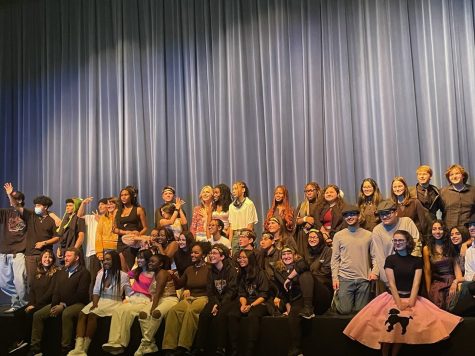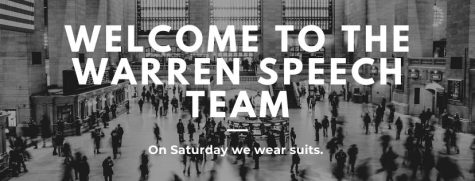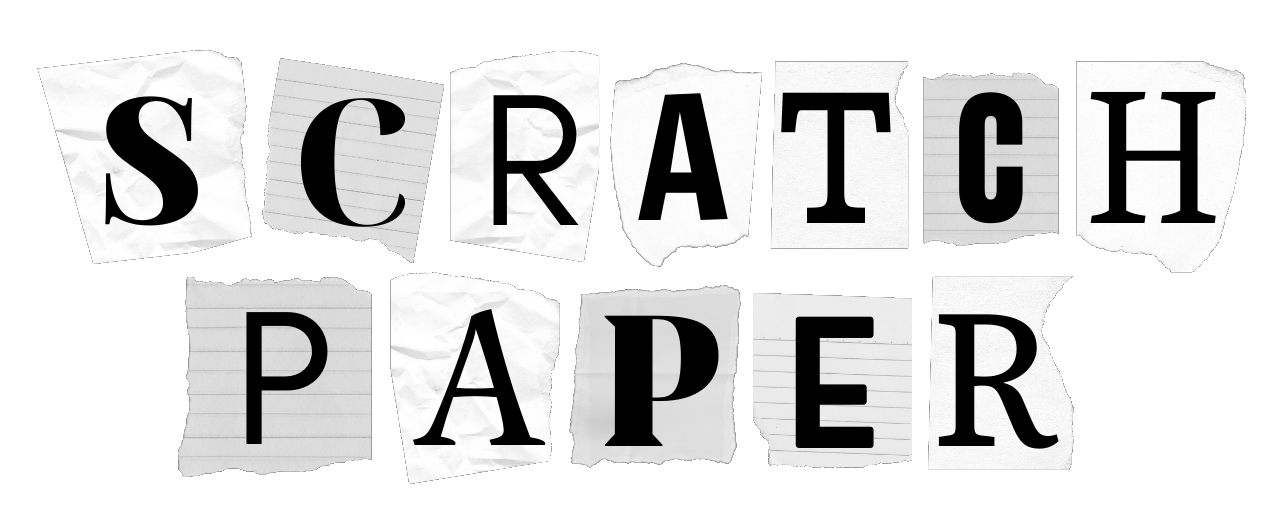Me Too.
The Movement that Woke the World
McCammon, Sarah. “In The Wake of Harvey Weinstein Scandal, Women Say Me Too”. Npr. 16 Oct 2017. Ikon Images/Getty Images
February 5, 2018
We’ve all done it.
Laughing with the crowd, whether we knew it was wrong or not. Telling the joke we thought was harmless. Hearing insensitive humor and brushing it off. We’ve all been guilty of at least one of these at some point. It’s a normal human reaction, to jump on the bandwagon and avoid confrontation. It is also unacceptable.
To trivialize serious topics through careless humor has broader effects than we know: it ingrains in our society a subconscious disregard for such subjects and ignores the complexities of our audience. You never know who around you has been affected by the serious injustice you just laughed at- so the jokes about race, sexual harassment, gender, sexuality- they need to end. Now, please. Thanks.
Specifically, your listeners’ likelihood of having been sexually harassed, or at least knowing someone who has been, is greater than you’d expect. In fact, 1 in 3 women ages 18-34 have been victims of sexual harassment in the workplace, and 71% of them chose not to report it (Time’s Up). How have so many women been objectified without our knowing? Why didn’t they say anything? Those, dear readers, are excellent questions – and thank GOD they are finally being addressed.
The Me Too movement, started by Tarana Burke, was formed to unite women in solidarity against sexual harassment, help them seek justice, and educate others on the long-avoided topic. Burke is an activist for female empowerment and the founder of Just Be Inc., a nonprofit that helps victims of sexual harassment. She started the Me Too movement after interviewing a 13-year-old victim – Burke was astounded and deeply moved by the experience; this pivotal moment lit the fire that would ignite the world in a frenzy of fury and disturbing truths.
The movement recently gained traction when actress Alyssa Milano, inspired by Burke’s phrase, encouraged victims of sexual harassment to reply “Me too” to her post on Twitter. The request exploded into the massively trending #MeToo, tweeted by over 30,000 people on the first night alone (New York Times). That crucial night, a simple phrase was transformed into the rallying cry of reincarnated survivors, emboldened to charge the barricade and fight.
Various platforms of media played an integral role in bringing sexual harassment to the forefront, increasing its visibility among other social issues. Awards shows have taken on this initiative with impressive gusto, through speeches and demonstrations that blatantly address the systemic nature of harassment in Hollywood and society as a whole. Most recently, the 2018 Golden Globes addressed the subject when celebrities wore black in solidarity, to signify their devotion to ending the harassment. Stars walked the red carpet with activists of the cause, including Burke, invited by actress Michelle Williams, to call attention to the profound injustice on a global stage.
More and more celebrities have chosen to use their platforms to address the issue. Reese Witherspoon embodies this trend in her formation of the Time’s Up initiative, founded by like-minded women in the entertainment industry, to end harassment and discrimination in the workplace. The organization donates to legal funds for victims pursuing justice and pushes for preventative legislation, seeking to eliminate future cases of harassment. The elite women of show business are speaking up for their sisters without voices.
“If something feels wrong, it is wrong – and it’s wrong by my definition and not necessarily someone else’s.”
-Ashley Judd, victim and key proponent of the Weinstein allegations, as spoken to TIME magazine.
The main proponent of the fervor in Hollywood is the recent backlash against Harvey Weinstein, a Hollywood producer accused of sexual assault by over 80 women in the media industry (USA Today). Actress Ashley Judd was one of the first to step forward, inspiring other victims to do the same. In almost every account, victims expose Harvey’s manipulative intimidation tactics, threatening the careers of his victims upon refusal. He consequently prevented many actresses from landing from successfully landing roles for decades. This economic consequence is all too real for many victims of sexual assault.
An overwhelming majority of harassment happens in the workplace – 25% of these cases are perpetrated by men with power over their victim’s career (Fortune). Predators not only defile the bodies and minds of their prey, but they abuse their power to deny victims job security and financial stability, via drops in pay, cutting hours, and threats of job loss. Therein lies one reason for the silence – economic fear.
One-fourth of workplace harassment occurs in the service sector, often affecting housekeeping employees in homes and hotels (Time’s Up Now). The commonality of this specific vein in harassment is due to the shocking ease of the situation – already in hotel rooms or bedrooms that the workers are paid to clean, residents trap their victims on the job. Juana Melara, a hotel housekeeper, recounts numerous occasions when guests exposed themselves suddenly; on one occasion, a guest stood fully bare, blocking her way to the only exit (TIME). Luckily, she escaped by the sheer volume of her screams. Many others are not as fortunate. A slew of employees at the Plaza Hotel in New York City now seeks justice for the repeated sexual advances of their coworkers. Despite the multitude of these accounts, owners of the Plaza emphasize to TIME magazine that they take “remedial action against harassment when warranted.” When superiors in the workplace may not even believe accusations of assault or refuse to address the problem, it’s no wonder so many victims refrain from taking action. The potential for change is rarely in their hands.
“They think because they go to certain luxury hotels and they pay a certain amount of money that they have the right to get the housekeepers’ bodies too.”
-Juana Melara to TIME, on the entitlement of harassers
The threat of unemployment affects not only the victims but their families as well. Why should I put myself before the lives of my children, dependent on the paycheck from my oppressor? This is the mindset of millions of women across the globe. Aggressors regularly threaten victims and their children with physical violence or death, with gruesome detail enough to scare the bravest of hearts into silence. Isabel Pascual recounts in TIME magazine her abuser’s repeated stalking, lingering around her home after he threatened the lives of her children. With the watchful eye of her abuser at home and at work, she was blocked on all sides in an inescapable, constant state of fear. Like so many women, Pascual’s broken silence was far more than the simple act of speaking the truth – it was risking the lives of her entire family for justice that might not even be attained.
There is a multitude of other factors that contribute to the formerly hushed culture of harassment. The abused, with tormented souls, struggle at first to grasp the significant event. Like the rest of us, they never thought it’d be them – that they would be a part of that 1 in 3. Survivors first deal with their anguish – too distressed to admit it to themselves, far from even putting it into words – and yet we question “why they didn’t just tell someone?”
Denial is a common reaction. Aly Raisman, former USA Gymnastics Olympian, speaks out against former Team USA Gymnastics Doctor Larry Nassar, who manipulated her and many other young athletes by fostering bonds that would lead the girls to misguided loyalty (CNN). Many of the gymnasts who now speak out against him perceived Nassar as more than a doctor, a friend. He perpetuated a facade of friendship through his strands of texts and visits to hotel rooms abroad, portrayed as signs of caring, to establish that they were more than just patients to him- just not in the way they thought. The girls trusted Nassar, as a nationally-renowned doctor and dignified adult, while he abused them physically, mentally, emotionally. His “grooming,” as described by Raisman, is what abusers so masterfully utilize to forge connections with their victims, instilling trust that later evokes denial, preventing survivors from believing or announcing the truth. Forming a relationship first is abusers’ way of making their victims justify the situation- that the action was necessary, that they consented, that they sent off the wrong signal, that it was their fault.
Amidst the internal turmoil of the survivors, there is a worry for the reactions of the world around them. Will they be rejected by their community? Or called promiscuous, easy, a liar? They will be known for this for the rest of their life. As survivor Lindsey Reynolds put it, “No one wants to be the buzzkill” (TIME). No one wants to step out of line and make everyone else uncomfortable. Addressing serious topics is difficult under any circumstance, but add emotional distress and first-hand accounts of sexual harassment, and the difficulty is increased by infinity. So, it turns out, one of the reasons survivors don’t speak up is the same reason we don’t- for fear of what other’s think. Let’s do ourselves a favor and trust that a woman would not lie about the abuse of her body; let’s not further the agony of victims by calling them a liar, or loose, or anything else that demonstrates our mistrust and depreciation of women.
Understanding the complexity of a victim’s response is vital, but it isn’t everything. Our society so often jumps straight to questioning the abused, and not the abuser. Why they didn’t come out earlier, how the situation unfolded, double, triple checking that they didn’t bring this upon themselves, wondering how they couldn’t stop their abuser… we are on the wrong side of the story. Terry Crews, actor and survivor, emphasizes this backward notion in stating that “Nobody questions the predator. You know why? Because they just expect it. And I expect it. And I just said, ‘No more.’ Why are you questioning the victim here? Let’s flip it. Let’s talk about what the predator is doing” (TIME). Amen, Crews, amen.
This massive movement marks a monumental change: it emboldened survivors to tell their stories, to educate a formerly oblivious public, and to shape the words “feminist” and “whistleblower” into titles of pride. This pivotal shift marches in step with the broader movement of revitalized feminism. Arguably, this all started with the two words “Me Too”. The simple phrase inspired others are to follow suit in solidarity, with newfound strength in numbers, forming revolutions of their own. That’s the importance of the Me Too movement: to empower women to pursue justice, to applaud them for their act of bravery and encouraging others to do the same, finally, deservingly, unabashedly exposing the guilty, impressing upon the world that such malevolent behavior will not be tolerated or hidden from the limelight ever again.
Sources:
“The Choice”, December 18th, 2017 issue of TIME magazine, Edward Felsenthal.
http://fortune.com/2017/10/17/me-too-hashtag-sexual-harassment-at-work-stats/
https://www.timesupnow.com/#ourmission-anchor
“Watch Aly Raisman confront Larry Nassar in court”, CNN, YouTube
“The Woman Who Created #MeToo Long Before Hashtags”, Sandra E Garcia, New York Times




